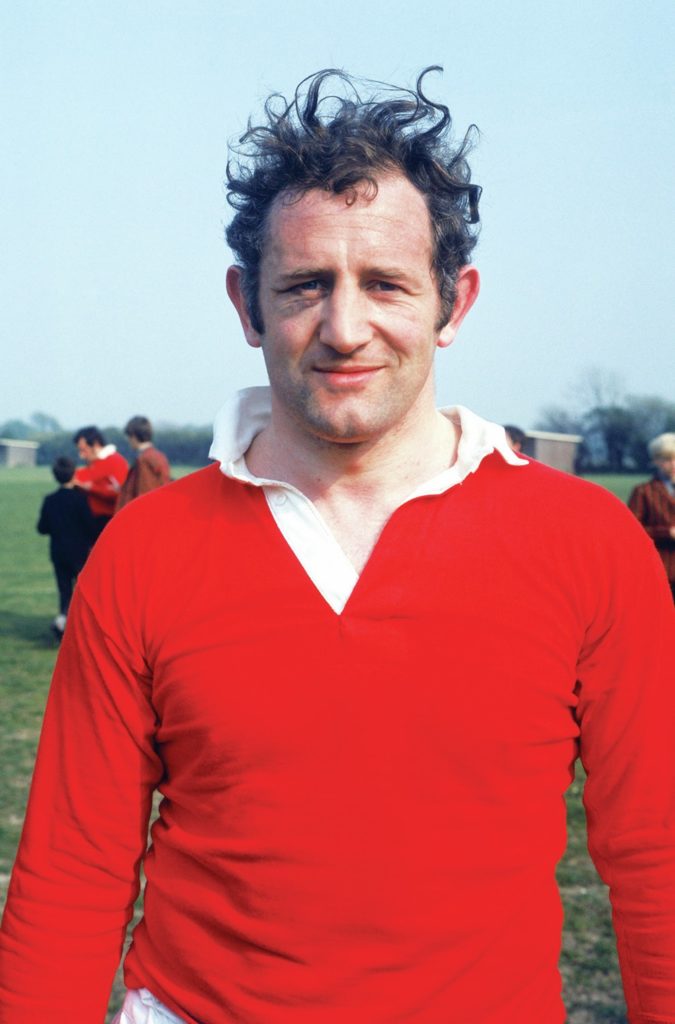
Peter Jackson remembers the life of Ireland’s great British Lion Ray McLoughlin
When they laid Ray McLoughlin to rest last Wednesday, the Lions he left behind paid homage to the Irishman’s gallantry on a field half a world away, half a century ago.
Old comrades able to witness The Scrum Scientist’s final journey to Shanganagh cemetery south of Dublin had no shortage of yarns to spin and none justified more spinning than those evoked by the X-certificate match against the Canterbury butchers during that historic tour of 1971.
A shameful episode which stands alone in the game’s black museum for its brutality has generated many hair-raising tales. A blood-curdling one revolves around what happened to Gareth Edwards for daring to leave the meanest of back row forwards clutching thin air off the back of a scrum.
Alex ‘Grizz’ Wyllie approached Edwards at the next stoppage by which time his face bore the look of grizzled menace. “Do that again, scrummy,” the All Black told him. “And I’ll break your bloody neck.”
A moment or two later, a blow from behind put Edwards down. “Off I went from the next scrum and Wyllie carried out part of his threat,” the Welshman said yesterday. “He gave me a rabbit punch across the back of my head.
“Ray saw it and took an instant dislike to what Wyllie had done and took immediate action. Ray didn’t hit him full on, but still caught him with a good one and blood spurted out of a cut about Wyllie’s eye onto my jersey.
“Unfortunately, Ray dislocated his left thumb. In looking after my interests, the damage meant that his tour was over. He was a huge loss because he had every front row in New Zealand in a tizz. We’re all very sad to learn of his passing.”
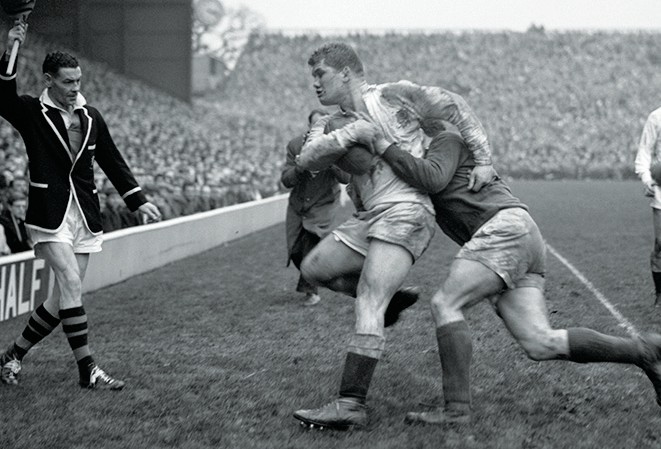
Earlier this year, McLoughlin revealed that he had considered making the ultimate protest in the face of Canterbury’s recurring violence and taking the Lions off the field. Whether that was before or after the Wyllie incident was not made clear.
“In that game there was a degree of intimidation that, to my mind, was unacceptable,” he said in a newly published book, Behind The Lions. “I was pack-leader and I was tempted to take the team off the pitch on the basis that it was the best way of making a protest.
“As pack-leader I was tempted to take the team off the pitch”
“Properly handled, it could be presented as not being afraid but as requiring more courage than not doing it.
Maybe I chickened out but I felt that with the macho approach New Zealanders had it would have been seen as a weakness.”
A highly successful businessman, McLoughlin found inspiration in a quote from one of America’s pre-war Presidents as the eldest of his four children, Lynne, told mourners at the requiem mass at St Anne’s Church in Shankill, on the south side of Dublin.
“He was fond of a quote from Calvin Coolidge: ‘Nothing in this world can take the place of persistence. Talent will not. Genius will not. Education will not. Persistence and determination alone are omnipotent. The slogan Press On has solved, and always will solve the problems of the human race.’
“Dad did not lack for talent, genius or education. But, like Calvin Coolidge, he also esteemed persistence, immense resolve and determination during difficulties in his life, none more so than in the last two years.”
She took understandable pride in recounting her father’s humanitarian work on location in Haiti after the earthquake there and how his prodigious efforts in creating an Irish equivalent of the Duke of Edinburgh scheme led to an invitation to the Duke’s 75th birthday dinner.
“Dad told me he was chatting to Prince Philip and Prince Edward for fully half an hour that night,” Lynne said. “And all they wanted to talk about was rugby. He always described his rugby career as the greatest dooropener there could be.”
Born in the Co Galway village of Derrymullan, McLoughlin played for Ballinasloe, Athlone, UC Dublin, Blackrock, Gosforth, Northumberland, British Universities and his native Connacht en route to everlasting fame with Ireland and the Lions. He loved scrummaging above everything else, a gruntand-groan trade which he refined by applying an artist’s brush and an analytical mind.
The late John Dawes, captain in New Zealand in 1971 of the first and only Lions team to win a Test series there, acclaimed him as “the intelligentsia of forward play”.
Willie John McBride spoke of him in the same reverential tones, as “hugely intelligent, a deep thinker about the game who understood what was required to be successful.
“Ray believed that it all started with the scrummage. Get that right and then you could think about developing from there. Without a power scrum, you have little chance in rugby.
“The eight-man scrum was developed by Ray. I remember us stealing the ball from teams like England by using this tactic on their put-in. In some cases we would destroy opposing packs through our power and Ray McLoughlin was responsible for that.”
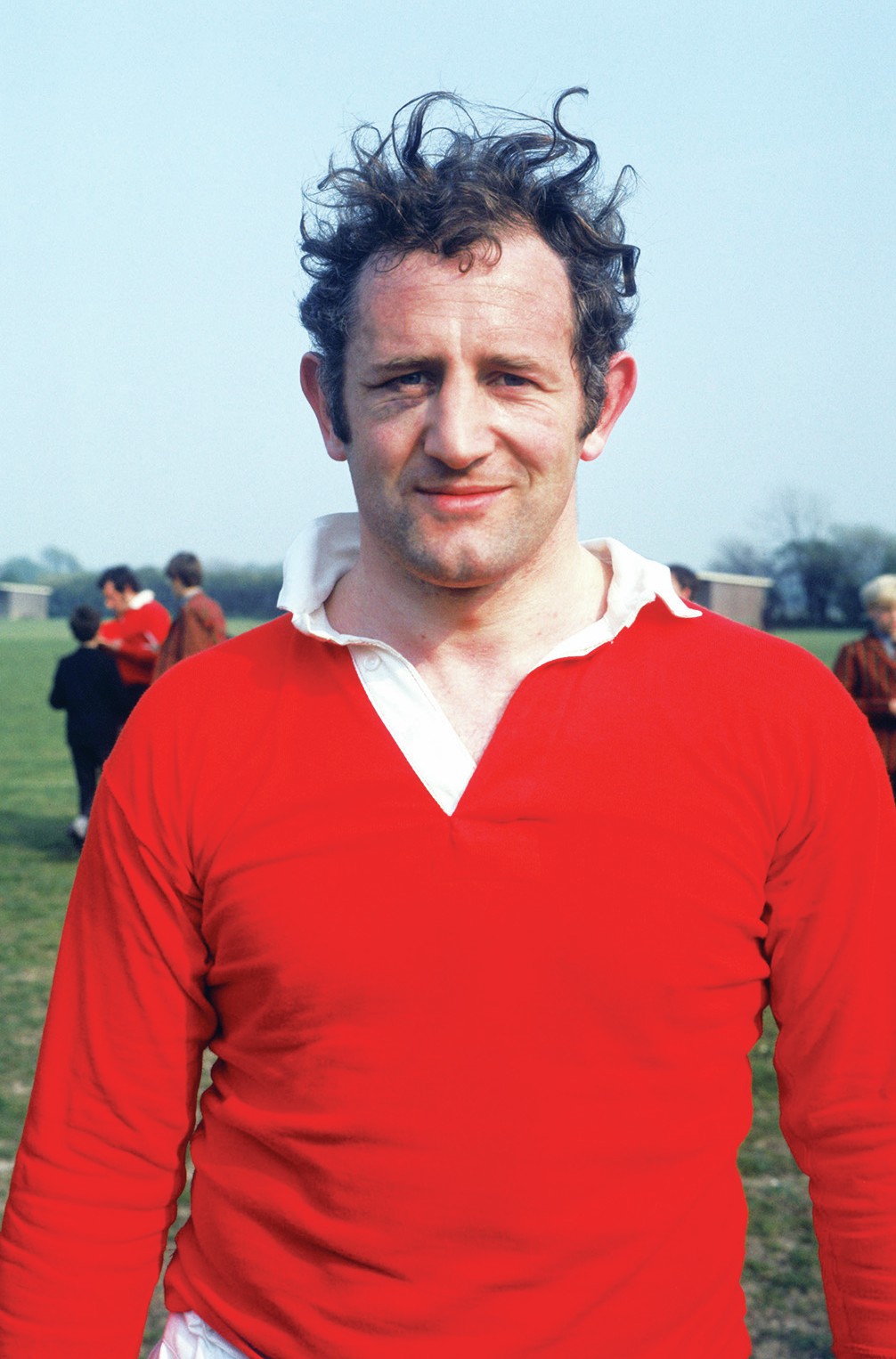
McLoughlin and McBride, from opposite sides of the border, made their debuts on the same stage, at Twickenham in 1962. They left it side by side 13 years later, after an ageing Ireland had been swept aside by Wales in Cardiff. By then each had left an indelible mark.
“Many believed McLoughlin should have led the 1966 Lions”
Ireland made McLoughlin captain at 25 in 1965. “At that time preparation for international matches was very relaxed,” Lynne said at the funeral. “Players and supporters mingled in the hotel on the morning of the match, selectors wandered into the dressing-room right up until kick-off and the team photograph was taken just ten minutes before the match started.
“Dad made immediate changes which included banning selectors from team meetings and the dressingroom. He also brought the time for the team photo forward by an hour.”
Many believed back then that McLoughlin ought to have been one of two candidates to lead the 1966 Lions in Australasia, an honour bestowed upon the Scotland lock Mike Campbell-Lamerton who was unable to command an automatic Test place. McBride still swears to this day that it should have gone to McLoughlin or the then Wales No.8, the late Alun Pask.
The smartest prop of his time, so smart that Carwyn James based the 1971 Lions’ series victory on the solid foundation of McLoughlin’s scrum doctrine, died last week at the age of 82 after a long fight against cancer. He is survived by two brothers, one of whom Phelim was capped by Ireland in 1976, a sister and four children – Lynne, Karen, Jennifer and John.

1 Comment
You must be logged in to post a comment Login
Leave a Reply
Cancel reply
Leave a Reply
You must be logged in to post a comment.
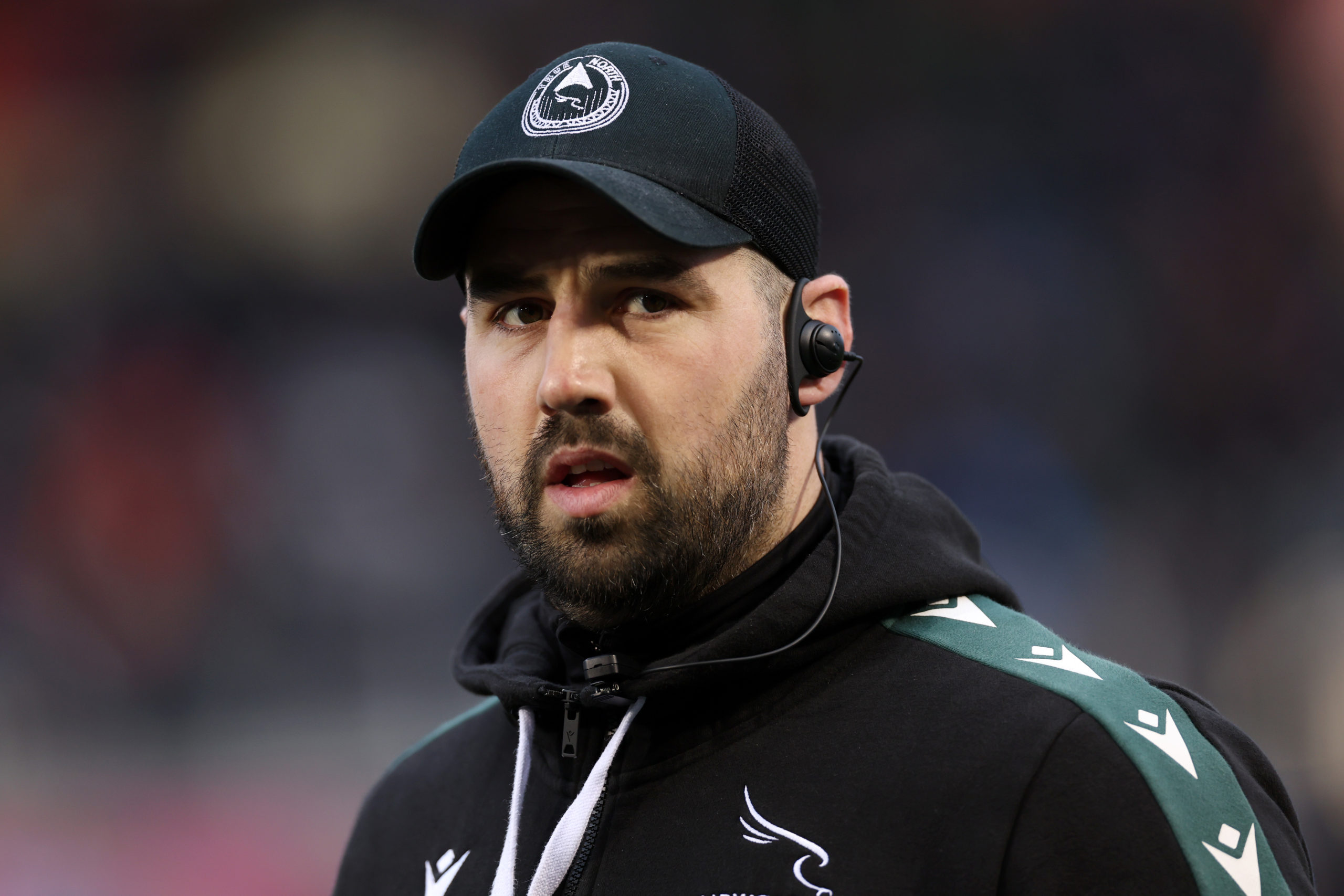
Latest News
Pete Ryan: Bridgend’s College Pathway

Latest News
Jacques Vermeulen: I must prove myself again
British and Irish Lions
Dewi Lake still dreaming of becoming a British and Irish Lion


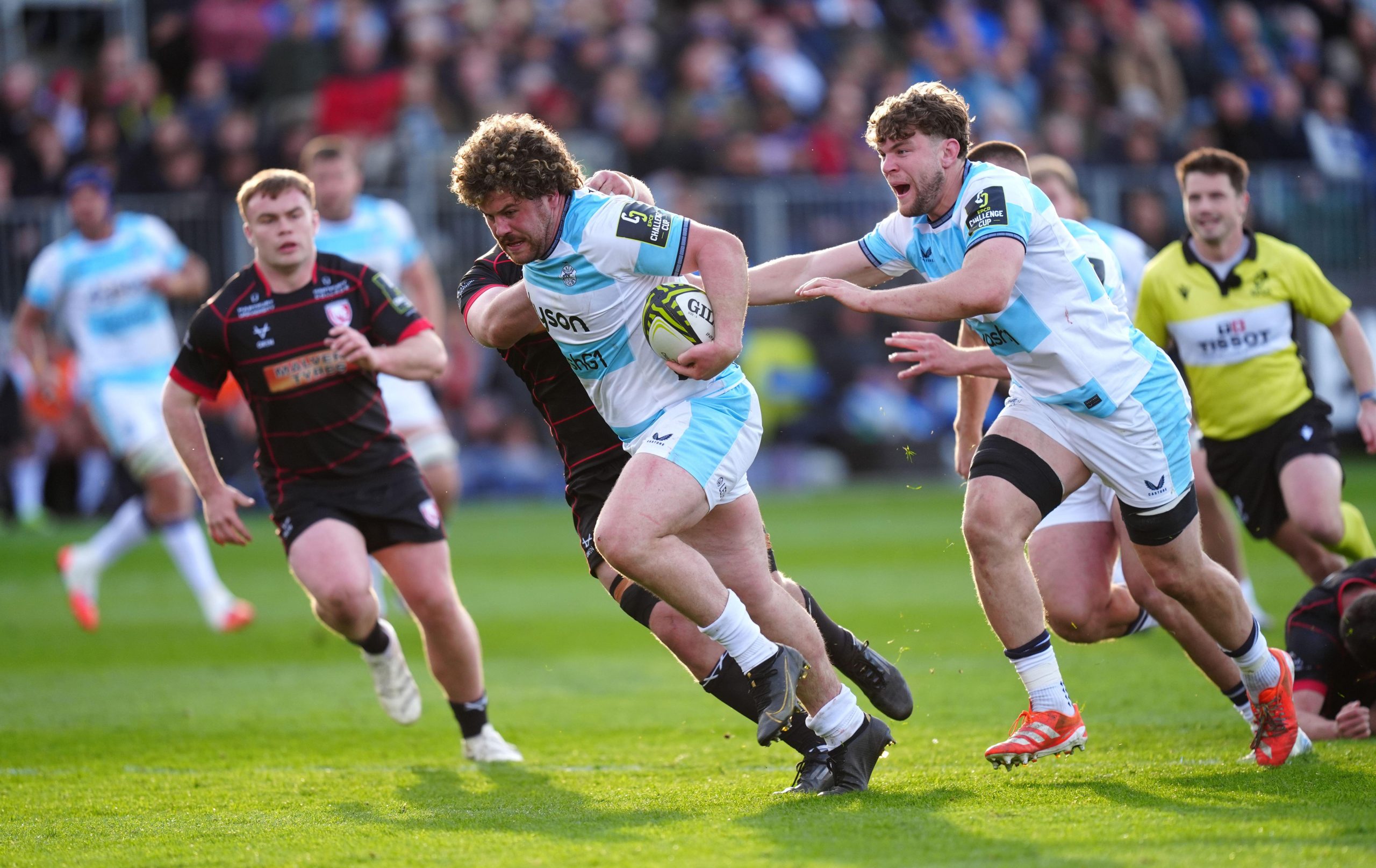




















Pingback: go to this website